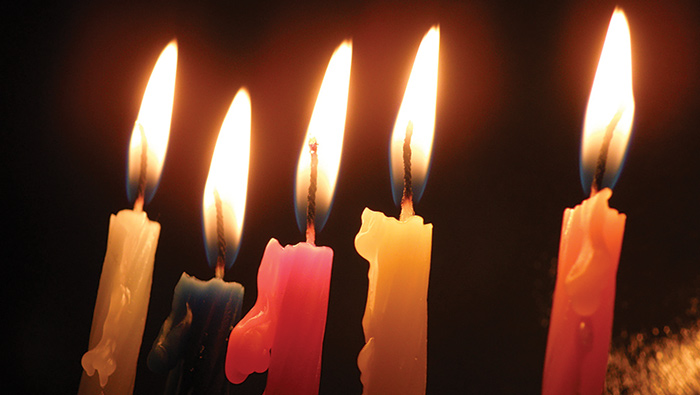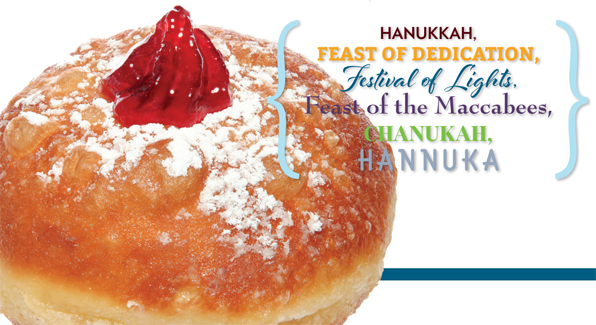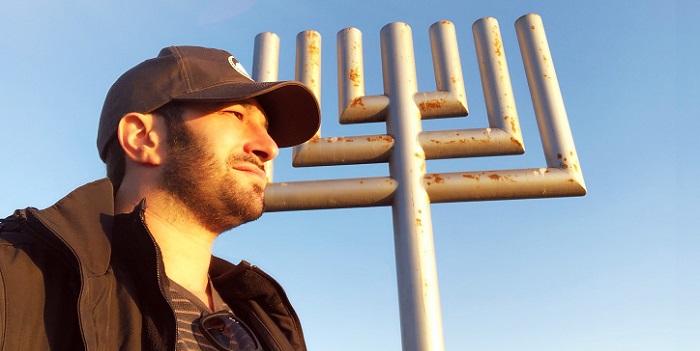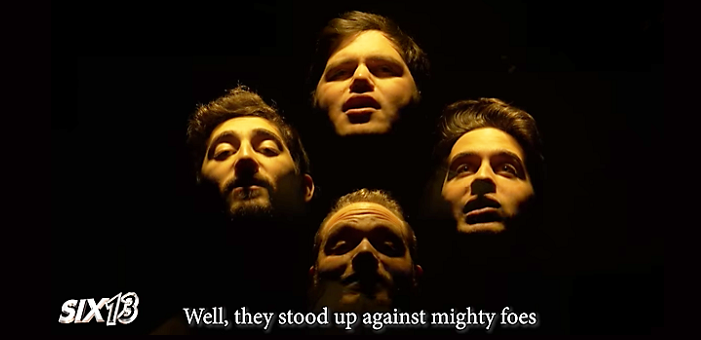Hanukkah is a holiday with many names. Some call it the Festival of Lights, while others refer to it as the Feast of Rededication or the Holiday of Miracles. When I was growing up, my friends called it Jewish Christmas. But nothing could be further from the truth.
Hanukkah, while deemed a minor Jewish holiday, is significant in that it teaches us to appreciate how different versions of the same story need not limit its credibility nor depreciate its value. Rather, we are given a chance to expand our understanding from the various lessons that each version teaches.
The historical version of Hanukkah, recorded in the Book of Maccabees, chronicles that in 168 BCE, King Antiochus desecrated the Holy Temple in Jerusalem and issued decrees prohibiting Jewish worship, circumcision and Shabbat observance. Mattathias the High Priest, along with his five, hardy Maccabean sons and a small group of Jewish insurgents, rose up and fought for three years against the Syrian army. On the 25th of Kislev, the Jews restored the Holy Temple and rededicated it to God. We learn from this version that through acts of defiance and resistance, the Jewish people can overcome oppression and live with dignity as Jews.
Another version of the Hanukkah story is the quintessential assimilation story. It focuses on the internal conflict between Jews as they struggled to expand and define what practices were acceptable for Jews living within a foreign culture. In the first few centuries BCE, Hellenism and its social, economic and political influences encouraged many Jews to compromise and abandon Jewish rituals and practices. Some Jews attended the gymnasium, participating in nude sporting events, which often required reversals of circumcision. The Maccabean fight was not just against non-Jewish oppression, but against the highly assimilated Jews whose conduct threatened the continued existence of the Jewish people.
Almost 400 years later, the rabbis of the Talmud gave the story yet a different spin. Their version doesn’t even mention the name Maccabee and the war against the Syrians or refer to the tensions of fighting against Greek assimilation. Rather, the rabbis focused on the role that faith in God played as the key to Jewish survival. We are taught that “a great miracle happened there” when a small cruse of oil lasted for eight days until more was found to keep the Temple’s menorah lit. The eight candles we light on our menorah remind us that we have survived over time because of our faith in God’s saving grace and power.
The significance of light itself is another aspect of the Hanukkah story. At the darkest, coldest and often bleakest time of the calendar year, Jews come together with family and friends to bring light, hope and joy into their homes. For eight consecutive nights, we add an additional candle, increasing our ability to fight against darkness and despair.
It is written in Proverbs 20:27 that “the human spirit is God’s candle.” Our tradition teaches that each of us has the capacity to bring light and goodness, holiness and compassion, into the world. Through our thoughts, actions and relationships, through our efforts to restore balance, justice and dignity in the world, we have the power to illuminate and inspire, even in the darkest of times.
The shamash is the special candle on the menorah that lights the other candles and is traditionally elevated. This year when you light the shamash, imagine for a moment that you have the power to become “God’s candle.” What would it mean to light up the world around you with hope and possibilities? What could you do to light up your world?
Your efforts don’t have to be time consuming or expensive, but consider these eight small efforts that can make a world of difference and a difference in our world:
• Show respect for others’ ideas, even when you disagree with them.
• Laugh at yourself, but not at others.
• Avoid harmful speech and gossip.
• Tell someone you love them.
• Donate food, clothing, time or money to organizations in need.
• Visit a friend who is lonely or sick.
• Say you’re sorry when you make a mistake.
• Stay present to the blessings in your life and be grateful.
When you light your candles this year, remember that Hanukkah is the only holiday when we wish each other “Chag Urim Sameach” – a joyous holiday of light!






